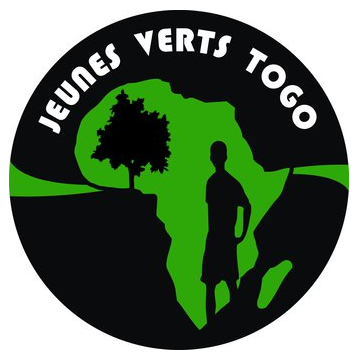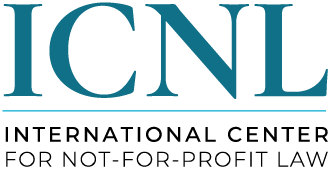The Bureau of Democracy, Human Rights, and Labor (DRL) announces a Request for Statements of Interest (RSOI) from organizations interested in submitting Statements of Interest (SOI) for programs that support Internet Freedom.
DRL’s goal is to protect the open, interoperable, secure, and reliable Internet by promoting fundamental freedoms, human rights, and the free flow of information online through integrated support to civil society for technology, digital safety, policy and advocacy, and applied research programs. DRL invites organizations interested in potential funding to submit SOI applications outlining program concepts that reflect this goal.
Internet Freedom Funding Themes:
SOIs must address the Goal(s) of one or more of the Internet Freedom Funding Themes:
Technology
Goal(s): Develop, improve, and implement technologies to support uncensored and secure access to the global Internet and/or to support the goals of other Funding Themes outlined below.
Digital Safety
Goal(s): Conduct programs that enable at-risk, vulnerable, and marginalized populations, or those who protect them, to prepare for, prevent, identify, investigate, and/or obtain remedy for repressive digital attacks; or other types of repression (including online surveillance and censorship) designed to prevent these populations from exercising their human rights and fundamental freedoms online.
Policy and Advocacy
Goal(s): Conducting or enabling policy advocacy to counter laws, judicial actions, regulations, standards, company policies, and protocols that restrict human rights and fundamental freedoms online; enabling the Goals of the Digital Safety or Technology Funding Themes; and/or otherwise promote and expand Internet freedom.
Applied Research
Goal(s): Research efforts to inform and benefit Internet freedom globally as outlined in the Goal(s) of the above Funding Themes, or to otherwise better understand and counter threats to Internet freedom.
Funding Information
SOIs that request less than $500,000 or more than $3,000,000 may be deemed technically ineligible.
Priority Regions
SOIs focused globally or focused on any region will be considered. Applications should prioritize work in Internet-repressive environments.
SOIs regarding technology development should have clear regional human rights use-cases and deployment strategies for the target region(s). SOIs focused on digital safety, advocacy, and research should also have region- or population-specific goals and priorities that are informed by clear field knowledge and expertise.
Eligibility Criteria
Organizations submitting SOIs must meet the following criteria:
Be a S.- or foreign-based non-profit/non-governmental organization (NGO), or a public international organization; or
Be a private, public, or state institution of higher education; or
Be a for-profit organization or business (noting there are restrictions on payment of fees and/or profits under grants and cooperative agreements, including those outlined in 48 CFR 30, “Cost Accounting Standards Administration”, and 48 CFR 31, “Contract Cost Principles and Procedures”);
Have existing, or the capacity to develop, active partnerships with thematic or in-country partners, entities, and relevant stakeholders including private sector partner and NGOs; and,
Have demonstrable experience administering successful and preferably similar programs. DRL reserves the right to request additional background information on organizations that do not have previous experience administering federal awards. These applicants may be subject to limited funding on a pilot basis.
Applicants may form consortia and submit a combined SOI. However, one organization should be designated as the lead applicant with the other members as sub-award partners.
DRL’s preference is to work with non-profit entities; however, there may be some occasions when a for-profit entity is best suited. Applications submitted by for-profit entities may be subject to additional review following the panel selection process. Additionally, the Department of State prohibits profit to for-profit or commercial organizations under its assistance awards. Profit is defined as any amount in excess of allowable direct and indirect costs. The allowability of costs incurred by commercial organizations is determined in accordance with the provisions of the Federal Acquisition Regulation (FAR) at 48 CFR 30, Cost Accounting Standards Administration, and 48 CFR 31 Contract Cost Principles and Procedures. Please see 2 CFR 200.307 for regulations regarding program income.
DRL is committed to an anti-discrimination policy in all of its programs and activities. DRL welcomes SOI submissions irrespective of race, color, religion, sex, gender identity, gender expression, sex characteristics, sexual orientation, pregnancy, national origin, disability, age, genetic information, marital status, parental status, political affiliation, veteran’s status, or other status. DRL requires all programs to be non-discriminatory and expects implementers to include strategies for nondiscrimination of individuals/organizations/beneficiaries.
Key Program Considerations
The following list of program considerations is provided as a guide to help applicants develop responsive, robust program proposals.
Projects should have a model for long-term sustainability beyond the life of the grant.
Preferences will be given to projects that create communities of practice and expertise, which do not just include, but elevate, stakeholders from local communities
DRL encourages applicants to foster collaborative partnerships, especially with local organization(s) in target countries and/or regions, where applicable. Where appropriate, applicants are invited to form consortia for submitting a combined proposal, with one lead (“prime”) applicant.
DRL strongly encourages applicants to consider contributing to, enhancing, collaborating or partnering with the developers of, and/or updating existing similar research, educational materials, or other resources before creating duplicative or similar products.
When working with marginalized and vulnerable populations, preference will be given to projects that substantively partner with organizations or groups that are composed of, or led by, members of the populations being supported and/or explicitly focus on issues related to those groups.
DRL strives to ensure its programs advance the rights and uphold the dignity of the most at-risk and vulnerable populations. Projects that directly engage with or focus on such groups, or with activities in repressive environments, must show an understanding of context-specific ethical and safety considerations of their approach, a clear plan for responsibly and safely conducting their work, and appropriate capacity and expertise to carry out that plan and respond to emergent risks to the program, implementers, and/or beneficiaries.
Any development or use of Artificial Intelligence and/or Machine Learning will be required to comply with Executive Order (E.O) Principles for Use of AI in Government.
All peer-reviewed scholarly publications authored or coauthored by individuals or institutions resulting from research conducted under proposed programs must be made freely and publicly available and accessible by default without any embargo or delay after publication, in accordance with administration policy. Research projects will be required to provide significant justification and approval for any restrictions or limitations on data access, use, and disclosure.



